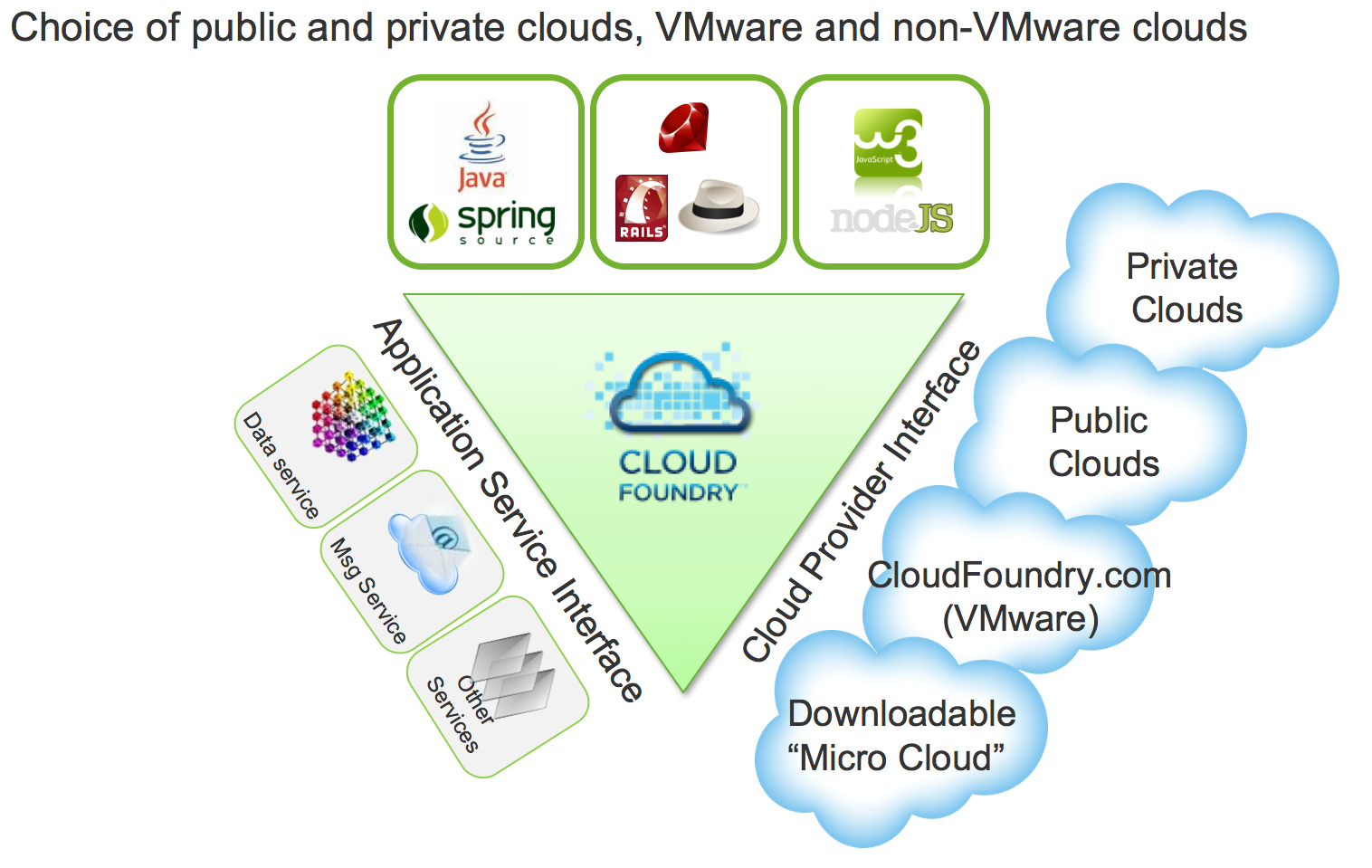VMware yesterday released an open-source platform-as-a-service environment, called Cloud Foundry, built to host multiple languages and frameworks in an open stack of application software that can run both inside and outside of the firewall.
Jerry Chen, senior director of cloud and application services at VMware, said that Cloud Foundry offers features that aren’t available in other platform-as-a-service offerings: specifically, VMware’s offering will expand to include numerous languages and frameworks, rather than tie developers to a single set of software tools. Chen also said existing PaaS offerings are not deployable behind firewalls, and none are yet open source.
“Platform-as-a-service is emerging as a category to solve these [new] problems. In a reaction to what we’ve seen for the past 18 months, VMware has been working to create this open PaaS solution,” said Chen.
Cloud Foundry is available online for free under the Apache 2.0 license, and it will be governed in a manner similar to the Spring framework, which VMware acquired. Chen said that Rod Johnson, creator of the Spring framework and director of VMware’s SpringSource business unit, will be heading up the project along with other members of the SpringSource team.
At the heart of Cloud Foundry is support for the Spring framework. Chen said that, initially, only Java applications based on the Spring framework will be supported inside of Cloud Foundry, but he added that, as an open-source project, there is nothing stopping developers from adding support for Java EE or other Java environments.
“We’ve built the solution to be extensible to add other frameworks down the line,” said Chen. “We picked three languages out of the gate: Rails and Sinatra for Ruby, and Node.js for JavaScript. We want to make sure that underlying plumbing can be extensible. In the future, there’s no reason we can’t add J2EE. It means running JBoss instead of Tomcat.”
Beneath the sheets, Cloud Foundry initially supports MySQL as a database and Reddis as a key-value store, but the plan is to add support for other databases and storage systems as time goes on. Chen said that Cloud Foundry offers a method for developers to expose existing APIs from other software into the platform, and he suggested that this could be used to add an Oracle database to the mix. Additionally, he also said that MongoDB support will be available when Micro Cloud, a development version of Cloud Foundry, ships later this year.

Micro Cloud is VMware’s solution for developers wanting to build applications for Cloud Foundry. Targeted for release during the summer, Micro Cloud is a small development version of Cloud Foundry designed to run on a developer’s desktop or in a test lab. The software will contain all of the APIs, environments and frameworks present in the full-sized Cloud Foundry installation, but will be small enough to run on a single machine for testing purposes.
Further plans include bringing in new partners to adapt their software to work in Cloud Foundry, and VMware hopes to make a commercial version of the platform available sometime later this year.






